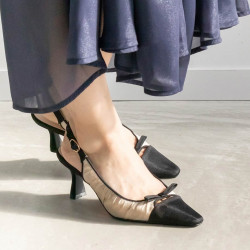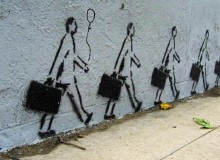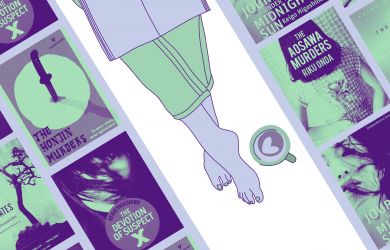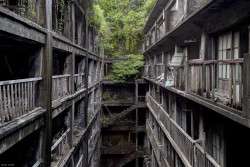
March 12, 2013
Karl Hyde
Fresh off the Olympics, Underworld’s frontman stabs out solo
Originally published on metropolis.co.jp on March 2013

If nothing else, their iconic soundtrack for Trainspotting—and in Japan their sets at Fuji Rock and Rainbow 2000—assure Underworld a spot in music history. But from their design collective Tomato to their music for the London Olympics, the British duo of singer Karl Hyde and musician Rick Smith are feverish in their exploration of new opportunities. Metropolis spoke with Hyde about his solo debut Edgeland ahead of next month’s SonarSound Tokyo.
After three decades, why the solo debut now?
Underworld was always touring, so I didn’t have time. But recently we’ve been given some space. It made us think it’s time to try some other things out so we don’t get tired of working with each other.
What was your take on being part of one of the planet’s most watched sporting events?
It was a joy to see Danny’s [director Danny Boyle] passion and belief that kickstarted such a positive summer in the UK. All the critics were out to rubbish it, and they were pleasantly wrong.
After that it must have felt nice to bring out that part of your musical consciousness that had been sublimated in Underworld.
I started it before the Olympics. I’d done some live shows with Brian Eno at the Sydney Opera House, and out of that came a renewed belief in myself. Working with Brian gave me an opportunity to see that I might be able to do something in parallel with Underworld. Through Brian I met the fantastic Leo Abraham and through eight days of improvisation with him I made the album.
Sounds like a lot of fun…
It was. Working on the Olympics, I would take a day off and get together with Leo, and we would express ourselves musically in whatever way we felt.
The liner notes suggest the project helped break your writer’s block…
I’ve written in a very particular way for a long time now, which is to write the fragments of my life that I see as I move through cities. But it was starting to get repetitive, and it was suggested that I start writing about me. I just didn’t know how to do that without sounding disposable. So I stripped it back until I had nothing, and there was a period where I felt finished. Speaking with other writers helped me find my voice again. Some of the songs on Edgeland have a sense of romance. I am a romantic. Even when I’m walking through the streets at nights and there’s decay and filth, I’ve always seen it as beautiful and poetic.
How will Edgeland translate live?
We’re nearly finished rehearsing here in the UK. I’m shocked to have such a fantastic band. [But] we’ll be playing more material than the album.
Japanese fans may want to hear a few Underworld songs.
I promise not to disappoint them.
So you’ll be providing some rave anthems?
Well, this group isn’t a jumping up and down group. We’ve taken tunes from Underworld and translated them into our own sound. Underworld have always been seen as an anthemic colossus that rolls around the world. When I stood on stage with Brian Eno at Sydney Opera House I felt I had to explore that side of Underworld that had been hidden for 20 years.
Speaking of your anthemic side, how do you perceive that music in retrospect?
There’s been some real magic music. It’s music of celebration. It was music to celebrate what is good about the human race, the coming together of people together en masse to enjoy each other’s company.
Why does music exist, what purpose does it serve?
For me, and my generation, it takes me out of myself and to another place, and I like that. It lifts me, it suits my mood. I go into my library and pull out records that suit my mood and if they aren’t there I’ll go online and find them.
You’ve been to Japan many times. Tell us about the evolution of your visits.
We first came over in the early ’90s. We played the opening night of the original Liquid Room. We were offered to play a massive show supporting Oasis, or do a very small show supporting others in Japan, and we chose to come to Japan. It was astonishing how the Japanese embraced our music. We went from there to headlining the big festivals and playing to 25,000 people—a really quite extraordinary ascendancy because of the way Japanese have taken to our sound, and for that I will always be grateful.







